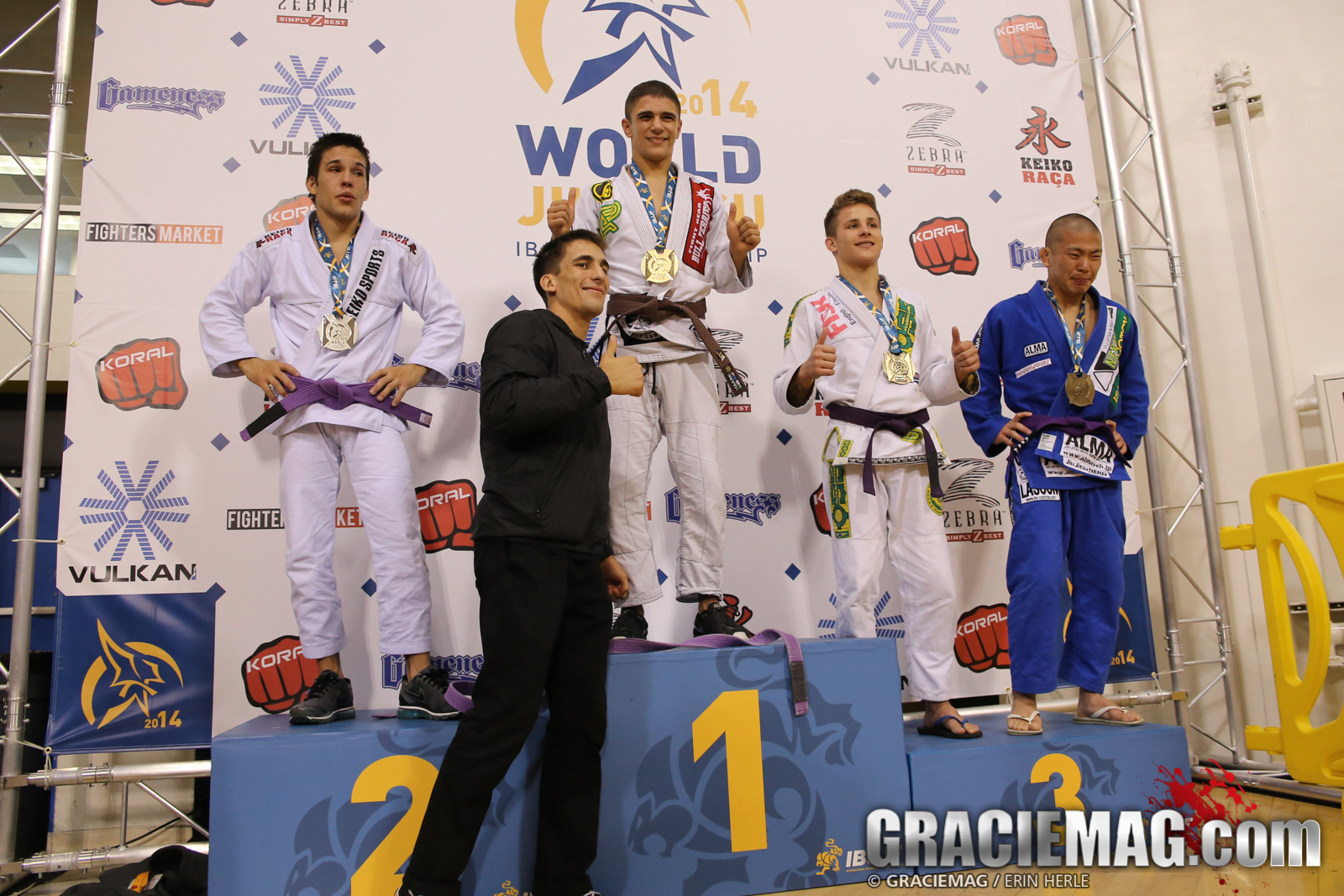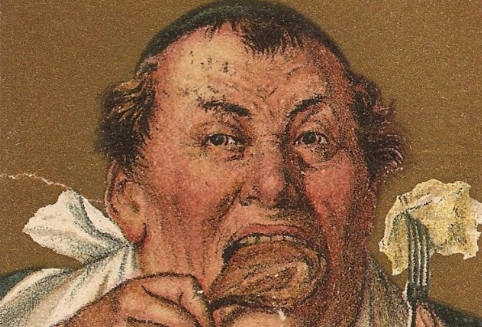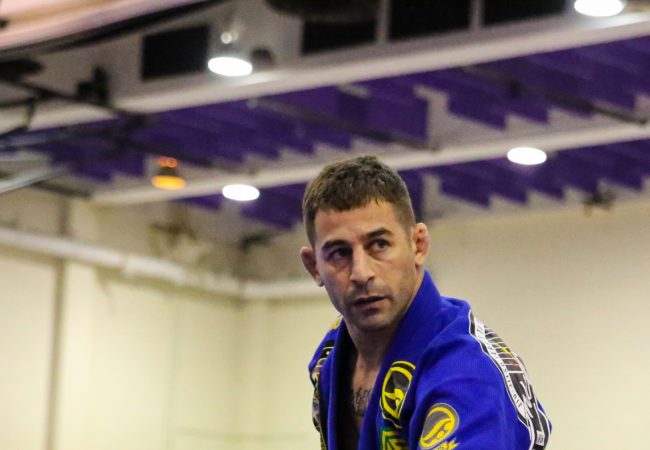
Seeing promotions on the podium at the Worlds is a common sight. Photo: Erin Herle
There is a common belief that if you compete regularly, you will be promoted sooner than those who only train recreationally. Every professor is different and so is every practitioner’s journey.
While promotions should not be the center of one’s focus, I polled instructors and athletes about being promoted and being the one to determine a promotion. I asked the opinion on keeping a student at a certain belt level until they win worlds or a major tournament. How do competitions influence promotions?
Here are the answers:
Marcos Torregrosa of Yemaso BJJ in Sacramento, California
“I think the most important thing for an instructor when assessing a potential candidate for ascension is to meet the goals of the individual, within reason of course. A competitor will not always hit their ultimate goal of achieving the gold at a huge event but that is not necessarily the ultimate marker of the maturity that time on the mat gives a practitioner. Does competing accelerate the process? In my opinion it does because they usually train more than the recreational practitioner yet to hold a person back from another set of challenges just because he/she could not meet an extremely high, and unreasonable on a large scale, bar is to teach that only “winning” facilitates growth. If you have done Jiu-Jitsu for a bit you know that most growth happens when losing.”
Fabio Gurgel of team Alliance in Sao Paulo, Brazil
“Every athlete has a different story but in general I don’t have any rush to promote my students to the next belt, so that if they have a good chance to win I would hold them a little longer to get this accomplishment. However, not everyone is capable to win a major tournament nowadays so it is not the most important for me; winning or losing they can get the promotion, it is just a matter of individual timing.”
Samir Chantre of Caio Terra Association in San Jose, California
“I think it all depends on what your student wants for his life. If he wants to be a professional in this sport, I think results would affect since after a win, you will go to the next level more confident and with the feeling that you didn’t have anything else to do on that level, like if you have finished the level that video game you have been playing… So it’s time for a new challenge. And the title you will have it forever, so it’s always good to collect as much as you can. On the other hand, if the student doesn’t have that desire of being a world champion and only trains for one of the other million reasons BJJ is good, and maybe even competes once in a while, it makes no sense to hold him back; he probably makes other achievements in life.”
Daniel Alvarez of Alvarez BJJ in Arlington, Texas
“I keep all my students whether they compete or not at each belt rank per IBJJF minimum guidelines. Some students and competitors could be longer depending on how consistent their training is and what their goals are. Competitors that consistently train but have higher goals like winning Pans, Worlds or any other major tournament will be held back a little longer to allow them a fair shot a their desired goal.
I try to keep it to no more than 2 attempts at Pans, Worlds or whatever major tournament they are shooting for. Any longer seems too much if they are living in the academy and just happened to fall short of their goal.
For example, Danielle is going on 3 years at purple belt but because she took 11 months off to go to Texas State, she really only has about 2 years at purple belt. She has only had 1 shot at Worlds as a purple belt. She took second place in 2014 and wants that world title in 2015. No matter what the outcome this year, she will move up in rank shortly after.
In my opinion, if a competitor does not make it to that #1 spot on the podium, it does not make them any less of a competitor or not worthy to go the next level. Maybe it just wasn’t their time at the belt level but will be at the next one. For me, it’s all about the effort that they put in and so they should be rewarded accordingly.”
Jared Weiner of BJJ United in Philadelphia, Pennsylvania
“I don’t believe in holding people back for tournament medals. I personally like to challenge my students to be victorious at the best level possible. I often see the student get too much pressure put on them because they have been a certain belt for so many years and know they won’t get promoted until they win the big one. And sometimes the big one never comes and it can actually cause the reverse effect in a students progression and take the fun and motivation out of the sport. If someone is ready for the next belt, then promote them.”
Romulo Barral of Gracie Barra Northridge in Northridge, California
For the guys who train for competition, the competition results for sure influence the belt promotion. I let the guys stay at their belt the average time as the IBJJF standards. Let’s say for example the guy is already there, reaches the time of the IBJJF limit, wins the world championship, has had a good attitude and work ethic, he will get promoted to the next level. But also, if the guy already has the time and he couldn’t win the worlds and the major tournaments, I’ll wait maybe one more chance to try again. If he doesn’t win then of course he will get promoted anyway. And then I’ll see how he can do at the level of the next belt. That’s pretty much the way that I was promoted by Draculino. That’s the way that i learned. And I don’t wait five years for the guy to win a major tournament.
For me I was a blue belt for one year and a half and I didn’t win a lot. I got second and third but i didn’t win Worlds, Pans or Brazilian Nationals. But I got promoted to purple belt anyway. At purple belt I won my first tournament that I competed. And then I won every single tournament at purple belt. Sometimes you stay a little longer to give the guy a chance to win the tournament and then see how much he improves. But sometimes there are just little mistakes but you know that he’s ready for the next belt. Basically what I expect from the guys who compete is when I see they’re ready to win at the next belt. As a blue belt, they need to be able to win a purple belt tournament already, not entering to gain experience.”
Ida Hansson of Arte Suave in Copenhagen, Denmark
“I believe it is right to promote people by different criteria depending on what their ambitions are; do they want to just roll a few times a week instead of going to a fitness center, or are they really dedicated, and want to become world champions? I believe the athletes with high ambitions should be held longer in their belts than the guys who train just for fun. They should be given two shots at the big titles before they are promoted to their next belt. It is also important to take into consideration what kind of dreams and hopes the athlete him or herself have; if it is their great dream to win the worlds in their belt, that should matter too. But you can’t hold people forever. If you have to be a world champion to get a new belt, not a lot of new belts would be given out. I believe you at least should be given the fair chance to win it. With that said getting a promotion is not just about winning tournaments, it is also about how you carry yourself on the mats, the attitude you have when rolling, being able to roll with everybody, if you have a general understanding of the game, it is not just about learning new techniques. It is about developing your game, and with all that you can’t really avoid growing as a person. The way I see it, being of higher rank in your academy is also about being a role model. You represent your belt, school and teacher both on and off the mats.”
Darragh O’Conaill of East Coast Jiu-Jitsu in Dublin, Ireland
“Keeping a student at a certain belt level until they win a major tournament is something that has become more and more common in sport Jiu-Jitsu. With the sport growing every year it becomes more difficult for people to win/medal at the elusive big tournaments. Personally I have no problem with this for the most part. If an instructor sees potential for a student to win or medal at a major tournament, or has a good relationship with the student and knows his/her goals, oftentimes it will take a couple of efforts to gain enough experience to hit the podium. Of course I also realise that sports Jiu Jitsu tournaments are not everything and are only a small piece of the Jiu Jitsu puzzle. A lot of people have no goals to succeed in them and jiu Jitsu is just for hobby, fitness, fun or self defence. As an instructor I think it’s important to have a close relationship with your students and understand their goals/potential. If they are motivated and willing to put in the work to make the major tournament podiums, I see no problem with giving them time to gain experience or as people call it “holding them back”.
I was a brown belt for 3 and a half years. This allowed me enough time to gain confidence and rack up plenty of losses at big events before I could start winning. Of course there are extremes to this and I’m not saying you can keep someone at a belt for years and years, but isn’t the average time for a BJJ black belt 8-10 years? That’s almost 3 years at blue, purple, and brown. Enough time for anyone to gain good experience, even though some might say this is “holding someone back”.
Justin Rader of Lovato’s School of BJJ in Oklahoma City, OK
“There are so many variables that come into play and should be considered when promoting somebody to a new belt in my opinion. And competition is just one of those aspects. Other variables that should be considered are knowledge base, age and athletic ability, time on the mats, ability to teach others, how well they spar with others in the room at their level and with higher ranks, how comfortable you feel with them as a person and the example they set, etc. And with each promotion, each of these aspects is held in a higher esteem. So, I do not believe that competition is or should be the only indicator of promotion in this art. However, I do encourage everyone to compete at least once at each belt. And competition can definitely speed up how fast you are promoted because you are then constantly testing yourself against people you do not know, who don’t know you or your style, and you learn to adapt during a match and learn more about your own weaknesses, both mentally and physically, and can work to fix those weaknesses, and test yourself again to show they have been fixed. But to hold somebody to the standard of winning the World Championships before being promoted can actually hold a person’s ability to progress in this art back and be detrimental to their overall martial arts journey. So, just like in all things in life, a balance of all these aspects is best.
From my own personal experience, I never won a blue belt world title, gi or no-gi, when I was promoted to the rank of purple belt in 2006 by Professor Rafael Lovato Jr. I had been a blue belt for 4 years under him (3 total years, I spent half of two of those years wrestling for my high school team), and I had competed at the Pans 3 times, coming away with a silver and a bronze medal on two of those times. I won many tournaments in Texas over those years as well. But my game was very one dimensional: score the takedown right at the beginning, and then don’t get swept or subbed, even if it meant gutting through things and just not tapping, and if the person pulled guard, don’t stop for a moment pressuring the pass, get my points, and ride out the match. And this worked better than 90% of the time for me, and I always did very well in the big competitions like the Pans, so my mind-set was if it wasn’t broken, don’t fix it. And I was limiting my own growth in the art, because I almost never got put on my back in competition. So why drill it? Professor Rafael saw this, realized I would not be pushed to open up my mind to the rest of the art of jiu-jitsu, especially in using my guard, at the blue belt level. So he promoted me to purple belt, where many guys now had much better guard games and could use them to neutralize me, shut me down, and I saw my competition success almost disappear for the better part of the first 6 months as a purple belt. I lost a lot of matches during that time, and it taught me that I had to open up my mind and learn to use my guard in the training room. Most nights Professor Rafael would make me start on my back, and if I got a sweep, I had to go right back. But he knew the better I could use my guard in the training room, the better I would understand the guard, and the better I could defend it. And he was right. I saw my competition success return, and never looked back. So there are definitely times when a person needs to be promoted based on more than just competition success, especially a standard as high and strict as having to win the worlds, and many aspects should be taken into account. World titles are nice, especially at the belts below black, and for those with goals and aspirations to win world titles, a black belt world title should be the ultimate goal. This was my experience, and I was lucky to have Professor Rafael Lovato Jr. to guide me through my jiu-jitsu journey.”
What do you think about competition and belt promotions?




